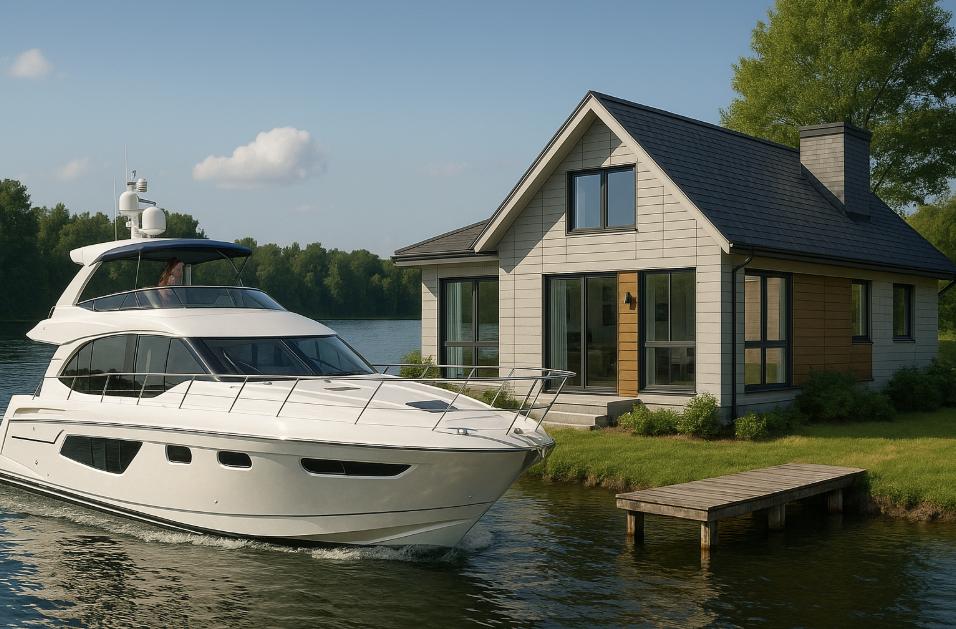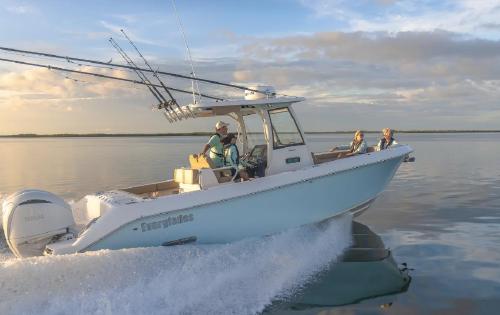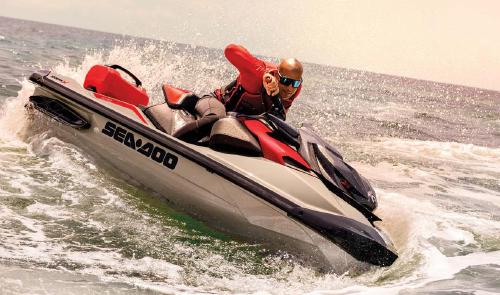For many folks, escaping the city during the warm months comes down to two dreamy options: buying a boat or buying a cottage. Both promise tranquility, water views, and a break from daily life—but each offers a vastly different experience, not just in lifestyle, but in cost, flexibility, maintenance, and even social interaction.
Whether you’re deciding how to invest in your family’s summers or wondering which path offers more freedom and fun, this article dives deep into the boat vs cottage debate to help you find the right fit.
The Lifestyle: Static vs Mobile
Cottage Life: Rooted in Tradition

Owning a cottage usually means choosing a specific location—on a lake, river, or bay—where you’ll return weekend after weekend. Cottages are often part of family legacies, surrounded by neighbors you’ve known for years. They offer:
- Routine and familiarity: The same dock, the same sunsets, the same local bakery.
- Comfort and space: Full-sized kitchens, bedrooms, and often enough land for a firepit, garden, or guest cabin.
- Year-round usability: Winterized cottages can be used for snowy getaways, not just summer fun.
But with that comes routine over exploration. Your view stays the same, and getting there typically means sitting in weekend traffic.
Boat Life: Freedom on the Water

Boating—especially with a cruiser, trawler, or liveaboard vessel—gives you mobility. Your “cottage” could be in Windsor one weekend and Tobermory the next.
- New places every weekend: Discover hidden coves, anchorages, and marinas across the Great Lakes or even further.
- Marina communities: Socialize with fellow boaters, join dock parties, and enjoy amenities like pools and clubhouses.
- Adventure and simplicity: Your boat becomes your kitchen, bedroom, and transport.
Boats offer freedom, but also force you to pack light, plan water and fuel stops, and sometimes accept cramped quarters.
Cost Breakdown: Comparing Dollars and Docklines
Initial Investment:
| Asset Type | Entry-Level Price (CAD) | Entry-Level Price (USD) |
|---|---|---|
| Cottage | $400,000+ (land access) | $300,000+ |
| Boat | $80,000 – $250,000 | $60,000 – $180,000 |
Prices are highly variable based on size, age, location, and season. Estimates shown as of mid-2025. Always consult a local realtor or broker.
Ongoing Costs:
| Expense Category | Cottage (Annual) | Boat (Annual) |
|---|---|---|
| Property Taxes | $3,000 – $7,000 | $0 (unless liveaboard slip fees) |
| Insurance | $800 – $2,500 | $500 – $2,000 |
| Utilities | $1,200 – $3,000 | $200 – $600 (generator, shore power) |
| Maintenance | $2,000 – $10,000 | $1,500 – $6,000 |
| Marina/Dockage Fees | N/A | $1,500 – $5,000+ |
| Winter Storage/Haul-out | N/A | $1,000 – $3,000 |
Verdict: Cottages tend to have higher fixed costs (taxes, utilities), while boats come with seasonal and maintenance variability—especially if you store indoors or have twin engines.
Maintenance & Hassle Factor
Cottage Upkeep

Think roofs, septic tanks, bug screens, and snow removal. If it’s waterfront, add dock maintenance, shoreline erosion, and pests like mice and wasps. While you can hire property managers, most cottage owners put in regular effort to maintain the property.
Boat Maintenance

Boats demand mechanical care: impellers, oil changes, hull waxing, bilge cleaning, battery upkeep, etc. But once winterized and wrapped, they “rest” until spring.
The difference? Cottage repairs often involve contractors and lumber. Boats require mechanics and marine parts—which can be delayed mid-season.
Travel and Access
- Cottages can take 1–4 hours by car. You’ll pack, hit highway traffic, and hope for early check-ins.
- Boats often live at a marina—ready to go. If you live near a dock or dry stack, your escape is much quicker.
Once you’re there:
- At a cottage, you’re stuck unless you drive somewhere else.
- With a boat, you’re always moving: beach hopping, exploring islands, or crossing borders.
Community and Social Life
Cottages
Cottage roads breed tight-knit communities, often passed down through generations. There are canoe races, potlucks, and fireworks—usually involving long-time neighbors.

Boats
Marina life is transient but lively. Boaters love to socialize, help each other dock, or offer a cold drink. You’ll build friendships across regions, not just your shoreline.
Some marinas even have scheduled events like docktail parties, pig roasts, and flotilla weekends.

Resale and Investment
Cottages—especially in hot markets—can appreciate over time, particularly where land is scarce. But they also come with capital gains tax (if not your primary residence), rising maintenance costs, and are subject to local market fluctuations.
Boats, traditionally seen as depreciating assets, are now holding value surprisingly well—especially sought-after models from reputable brands. In today’s market, many late-model cruisers and trawlers are reselling at strong prices due to limited new inventory and rising interest in the boating lifestyle.
Also consider: a boat purchase avoids land transfer taxes, municipal levies, and long-term property tax bills. The capital you save on a boat vs a cottage could be invested in financial markets with better returns—and without incurring capital gains on real estate appreciation.
In short: boats may not appreciate like land, but they offer lower friction, less tax exposure, and a more flexible use of capital.
Which is More Family-Friendly?
- Cottages offer space, security, and ease. Great for large family gatherings.
- Boats are better for families who love the water and adventure.
That said, more families are embracing hybrid solutions: a trailerable boat for exploring, and a modest cottage to anchor their summer base.
Final Thoughts: Ask Yourself These Questions
- Do you prefer routine or spontaneity?
- Is your ideal weekend about projects or unplugging?
- Do you enjoy hosting large gatherings, or exploring new places with a smaller crew?
- Is real estate a priority—or is it about memories?
Conclusion: Boat, Cottage… or Both?
There’s no wrong answer. Some end up owning both: a small cottage and a trailerable bowrider. Others use boat clubs or rentals for flexibility without ownership.
But if you’re ready to commit to a lifestyle, think about your personality, travel habits, and how you want to spend your summer Saturdays. If you dream of island-hopping with the wind in your hair, boat life is calling. If you crave bonfires and family dinners in a screened-in porch, a cottage might be the better fit.
Whatever you choose—just don’t forget the sunscreen and a cold drink.
Disclaimer: All prices in this article are estimated and subject to change based on region, model, market conditions, and exchange rates. Always consult with local experts when making a purchase.



Use the share button below if you liked it.